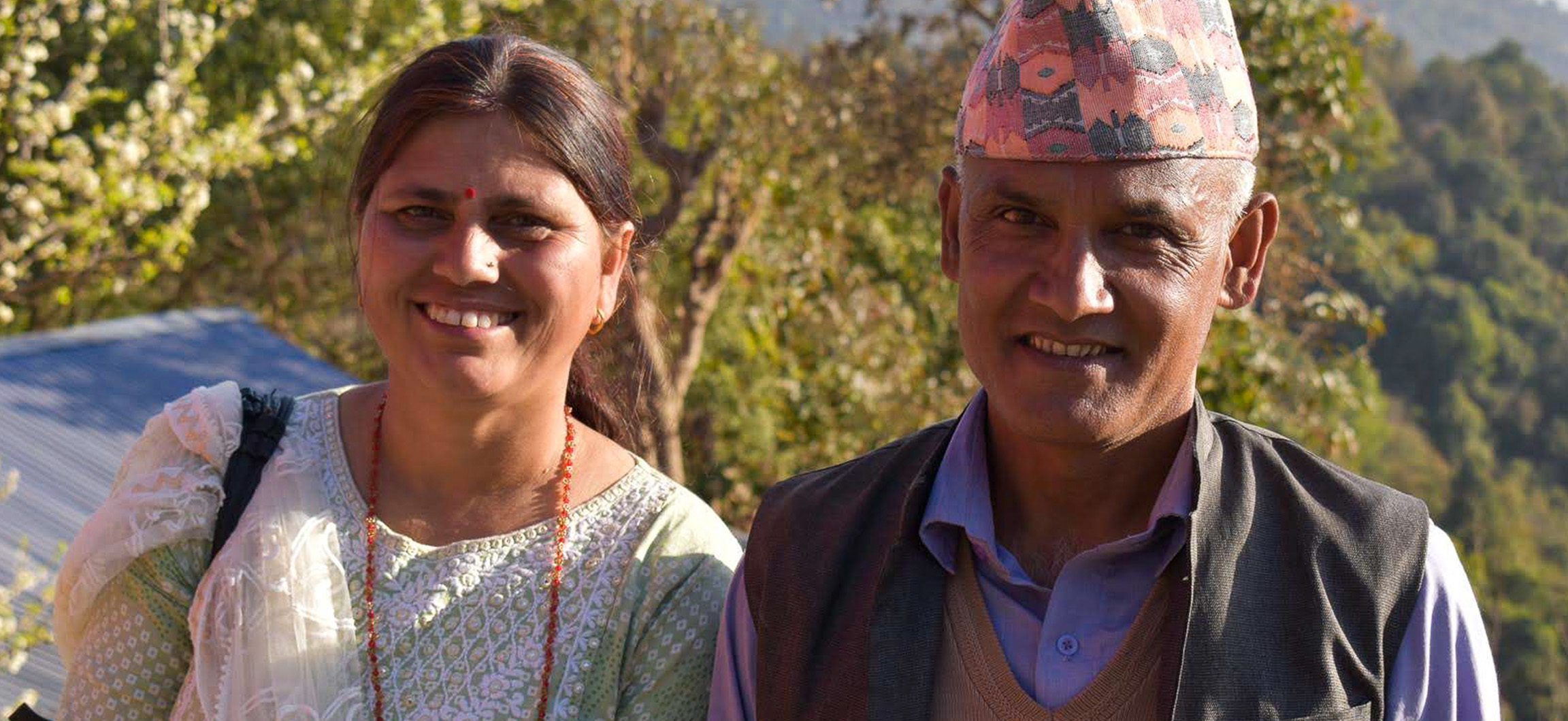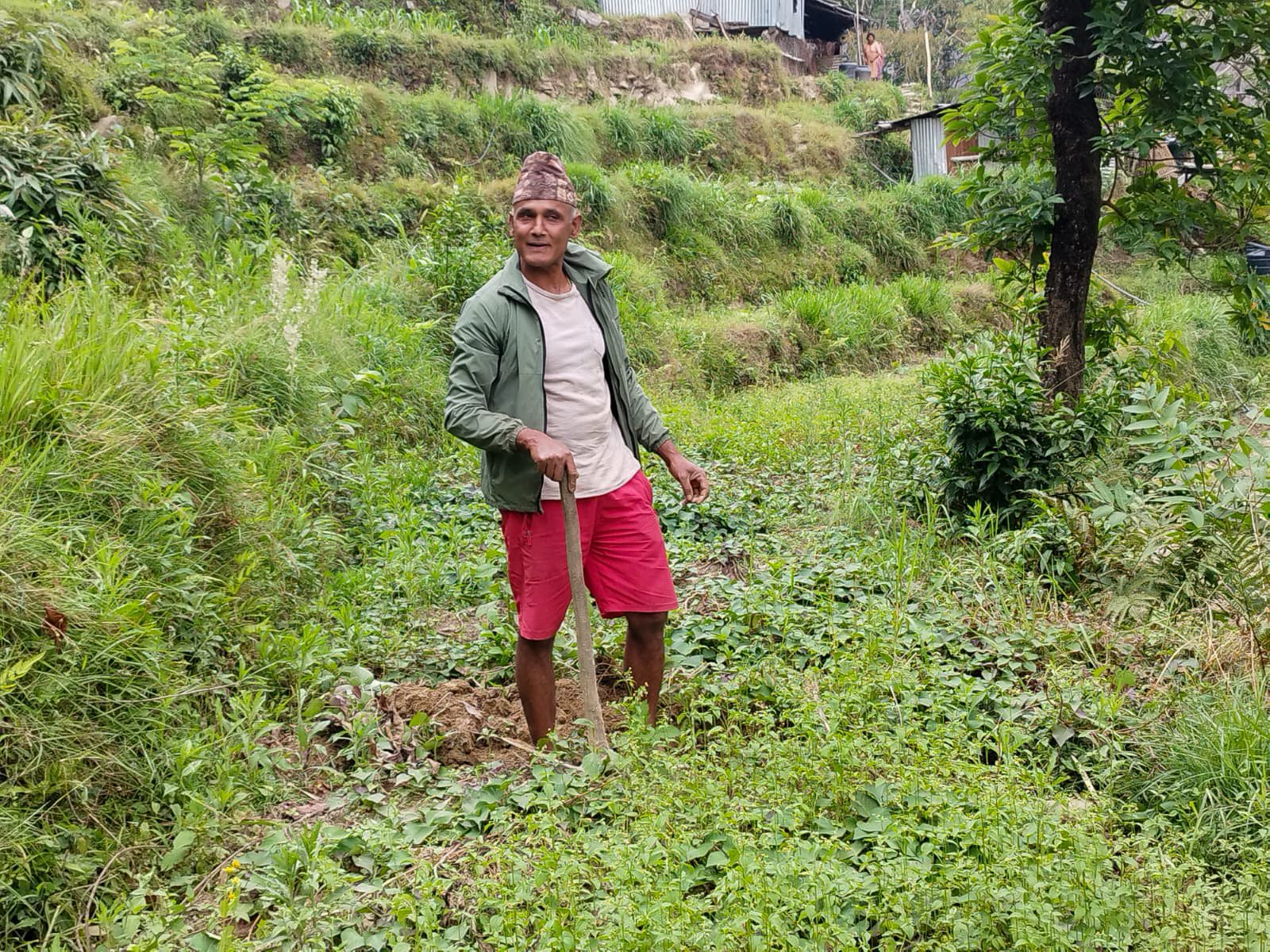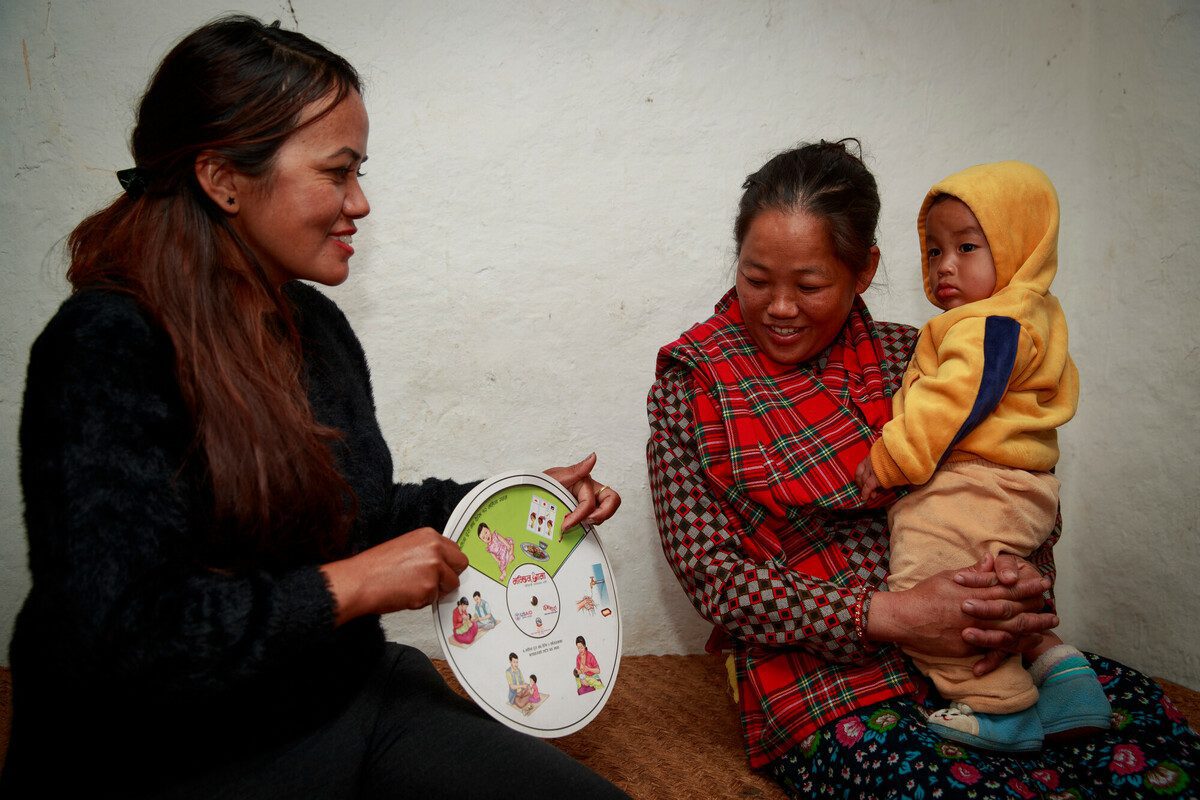Helen Keller’s Orange-Fleshed Sweet Potatoes Lead Nutrition in Nepal
52-year-old Bishwo Nepal and his wife Gayatri Nepal remember almost losing their whole harvest the first year they farmed. Only one crop survived: orange-fleshed sweet potatoes. Bishwo was able to sell his sweet potato harvest earning enough money to save the family farm and perhaps their livelihood.

The couple lives in the Bahrabise Municipality, in the north of Nepal. Although the region is fertile, it is prone to natural disasters like flooding. The next year, Bishwo increased the size of his sweet potato crops, increasing his harvest and income by more than six fold.
Seeing Bishwo’s success, many of his neighbors have followed in his footsteps, growing orange-fleshed sweet potatoes themselves. “I have provided the vines to a few neighbors. They are planning to start farming it this season,” explained Bishwo.
I have provided the vines to a few neighbors. They are planning to start farming it this season.
Bishwo Nepal
Yet it’s hard to imagine that only a few decades ago, orange-fleshed sweet potatoes didn’t exist in Nepal.
A New Type of Sweet Potato: Orange!
For more than three decades, Helen Keller has partnered with the Nepali government and communities to reduce barriers to equitable healthcare, nutrition, and vision care, reaching 60% of all Nepali citizens. This includes finding solutions to treat and prevent malnutrition, working with pregnant and nursing mothers to keep themselves and their children healthy before, during, and after birth, and helping families raise nutrient-rich foods that defy climate challenges.
Sweet potatoes are nothing new for Nepali farmers. They have historically grown a popular white variant of sweet potatoes in the region. However, these varieties lack a key nutrient to promote health and strong vision: vitamin A. Ensuring growing children have enough vitamin A means building strong immune systems to fend off diseases. Vitamin A also helps protect vision. This essential vitamin is known to reduce the rate of diseases and deaths in children 0–5 years by more than 25%.
Orange-fleshed sweet potatoes contain beta carotene, which bodies convert into vitamin A. Further, when these crops were tested in Nepal, they were found to be well-matched for the country’s hilly and low-land soil and temperamental climate. By helping families grow orange-fleshed sweet potatoes, we could make immediate steps to improve health and nutrition.
Introducing Helen’s Sweet Potatoes
In order to help farmers access these nutrient-rich crops, they had to first be registered with the Nepal Agriculture and Research Center. In 2007, Helen Keller introduced orange-fleshed sweet potatoes and supported the process to have them approved.
When the crop went to trial, they were named “Helen’s Sweet Potatoes.” By law, the Nepal Agriculture Research Center must test and approve any new crop. During testing, they found that Helen’s sweet potatoes were a good fit for Nepal’s hilly and lowland climate and soil.
The success of Helen’s Sweet Potatoes shares the same ingredients for success as Helen Keller: they are resilient and make the world a better place. This vegetable thrived in the challenging climate, required less water, and yielded a significantly higher harvest than other traditional crops grown in the region. On top of all those benefits, these sweet potatoes have helped improve soil fertility, reduce soil erosion, and overall enhanced the agricultural landscape of the region.

Helen’s Sweet Potatoes in Action
With the success of Helen’s Sweet Potatoes, people like Bishwo and Gayatri are able to grow these in their own farms and gardens, providing valuable nutrition right at home. Because the potatoes grow so easily, there are also more to sell at markets.
This year Bishwo is excepting to double his crop again and build more financial security for his family.
More so, the local municipality has committed to buying sweet potatoes and distributing it to all of the schools. Not only will this provide children with a nutritious midday meal, but it will also raise the income of Bishow and his neighbors.
Interventions like bringing orange-fleshed sweet potatoes to Nepal have allowed nearly 100,000 families to include more vitamin A in their diets — making a life-saving nutrient for children more readily available.
You can support work like the farmer education projects in Nepal and help us reach more farmers.

Help us ensure more families have the tools they need to create lasting change in their own lives.









